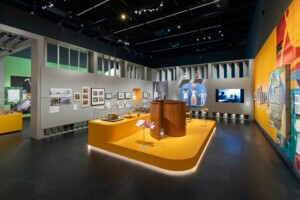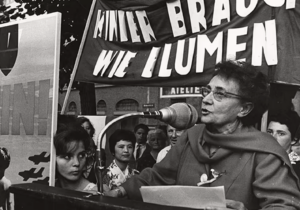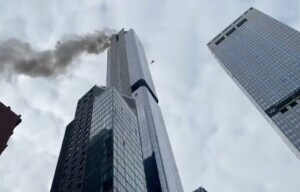Universal Hall, a monumental 1965 cultural venue designed by Vladimir Jaroslav, Ljubomir Stankov, and K. Stankova-Mutafova, caught fire in Skopje, North Macedonia, on April 9. Repairs were happening on the midcentury building’s signature dome when a massive fire broke out, destroying its roof. Nobody was injured, but the catastrophe has caught the attention of architects and preservationists.
Since Yugoslavia’s collapse in 1991, Universal Hall has been in a state of limbo. The building has changed ownership several times, and has been closed since 2015 for renovations by the Ministry of Culture. The recent renovations were being carried out to prepare Universal Hall for 2028, when Skopje will be the European Capital of Culture. Now, this most recent fire has placed the important cultural building in further jeopardy.
In recent years, Yugoslav architecture has received significant attention in the Global West, with publications and exhibitions indebted to the subject. Certainly, Skopje’s Universal Hall is one of the best examples of architecture produced during this socialist epoch, and the revolutionary ideals world leaders once aspired to.
Universal Hall debuted in 1966, at the height of the Cold War. The design features a multi-story dome that contains 1,800 seats flanked by a grand foyer on one end and administrative spaces on the other. A sculptural stair in the foyer connected the upper and ground levels. In section, the building recalls Étienne-Louis Boullée’s Cenotaph for Newton (1784), or Mikhail Barsch’s Moscow Planetarium, completed in 1929.
But what’s more impressive than Universal Hall’s architecture is its story: Prior to its construction, in 1963, a disastrous earthquake struck the mountainside capital of Skopje. The catastrophe claimed 1,000 lives and destroyed almost 80 percent of Skopje’s buildings. In turn, the construction of Universal Hall was made possible thanks to contributions by almost eighty countries from around the world, which came to embody Skopje’s reconstruction, according to historians Ana Ivanovska Deskova and Damjan Kokalevski.
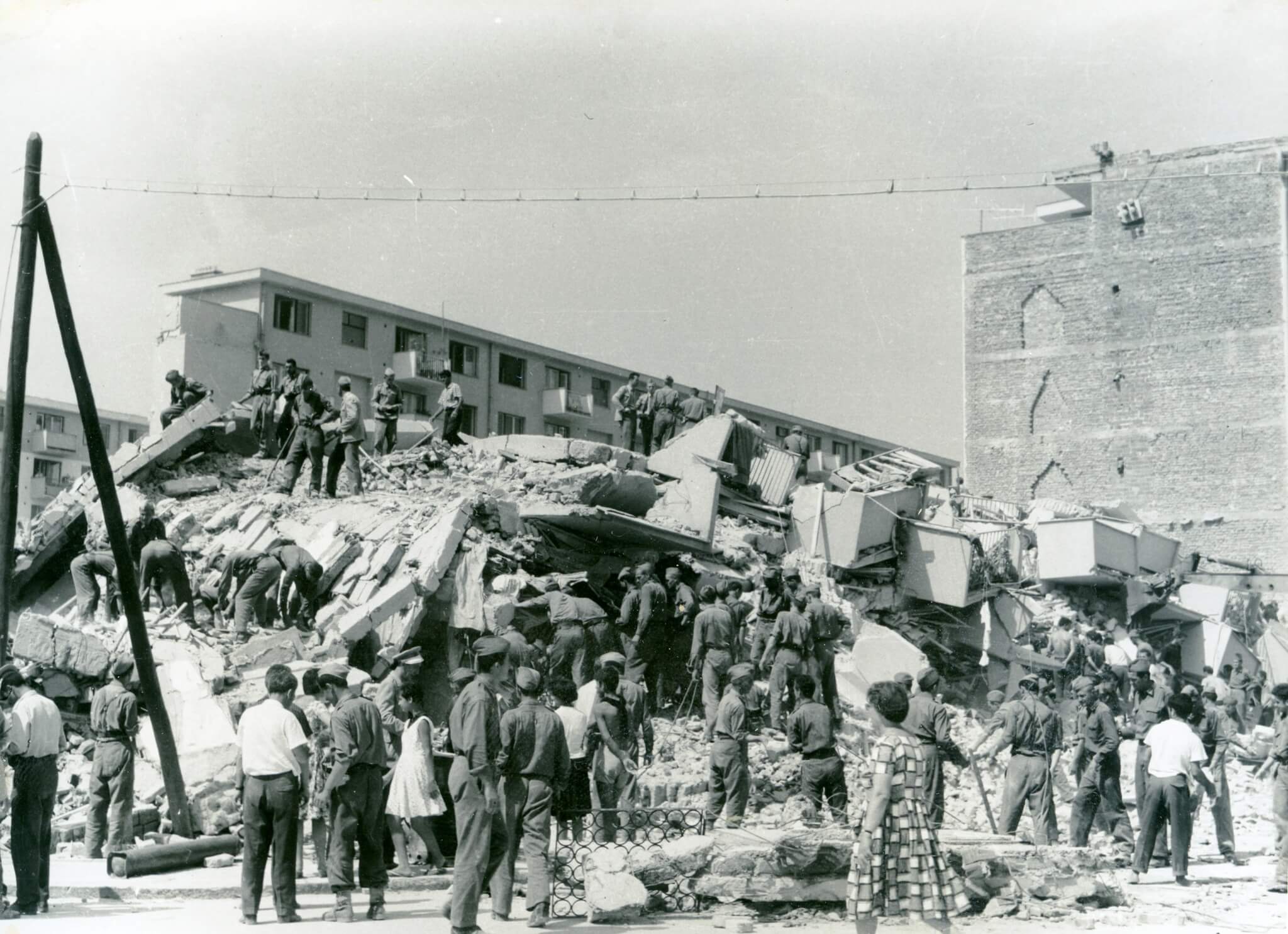
After the earthquake, Yugoslav President Josip Broz Tito reached out to world leaders from the United States, U.S.S.R., and Non-Aligned Movement, which included liberated Asian and African countries, for help and aid poured in. Beginning in 1964, copious amounts of prefabricated housing, hospitals, and schools were built throughout Skopje thanks to generous gifts by world leaders.
Universal Hall began hosting functions in 1965 before it was officially completed, and formally opened in 1966. Three years later, in 1969, President Tito joined world leaders there at the annual Antifascist Assembly for the National Liberation of Macedonia, an important event which was held since the end of World War II.
Following Yugoslavia’s collapse, many urban planning regulations were lifted in Skopje; and numerous midcentury buildings were demolished. Universal Hall survived the wanton purges, but suffered from years of neglect and ownership changes. For decades, the building was used for concerts, plays, and even Eurovision.
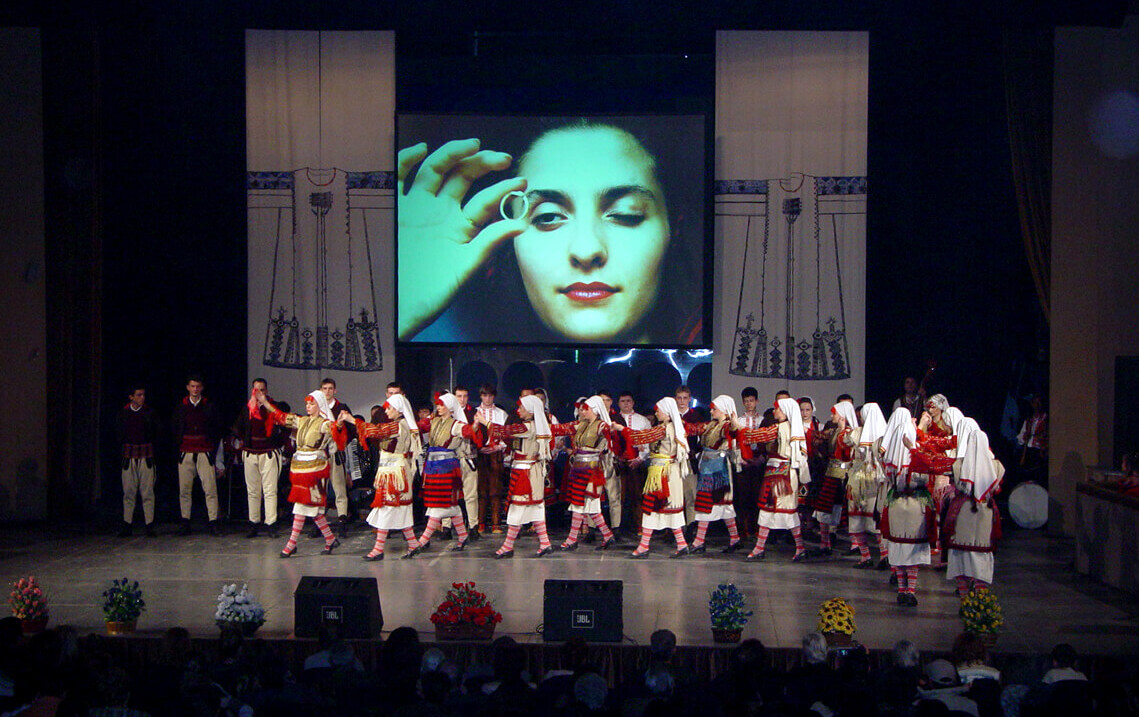
In 2013, Universal Hall was declared unsafe for usage after years of deferred maintenance. By that time, the building had become a symbol of an “unfavorable” past, Ana Ivanovska Deskova and Damjan Kokalevski said. Two years later, in 2015, government officials proposed demolishing the building for a new auditorium, but that demolition was marred by a series of stops-and-starts. Then in 2020, city officials again proposed destroying the building, but that idea was met with stiff opposition from the public.
The Skopje Basic Public Prosecutor’s Office is now investigating the April 9 fire to determine if it was an accident or “caused by a human factor.”
According to local reporters, three construction workers who were present at the building around the time of the fire have been detained.








